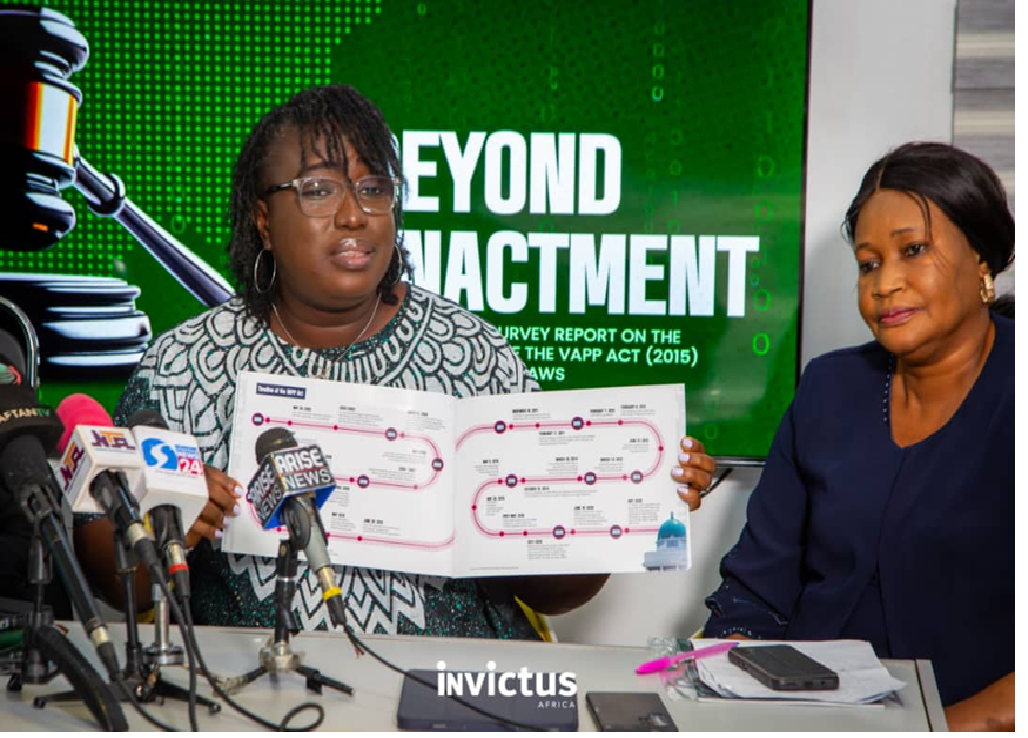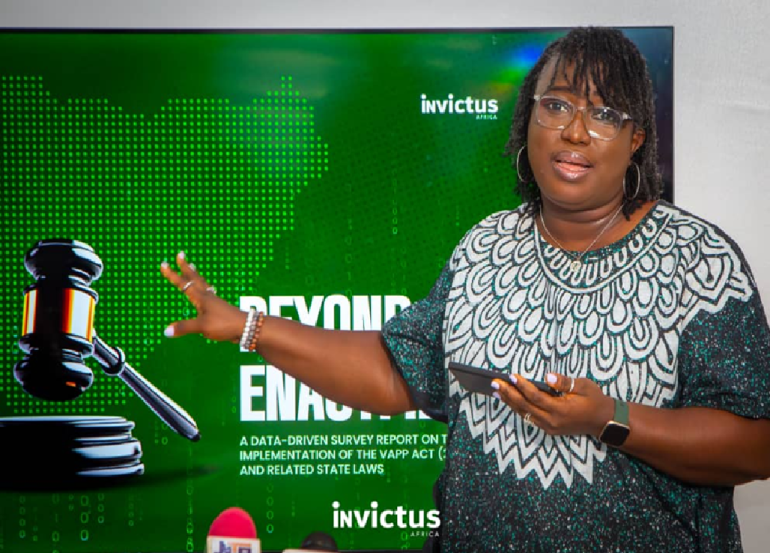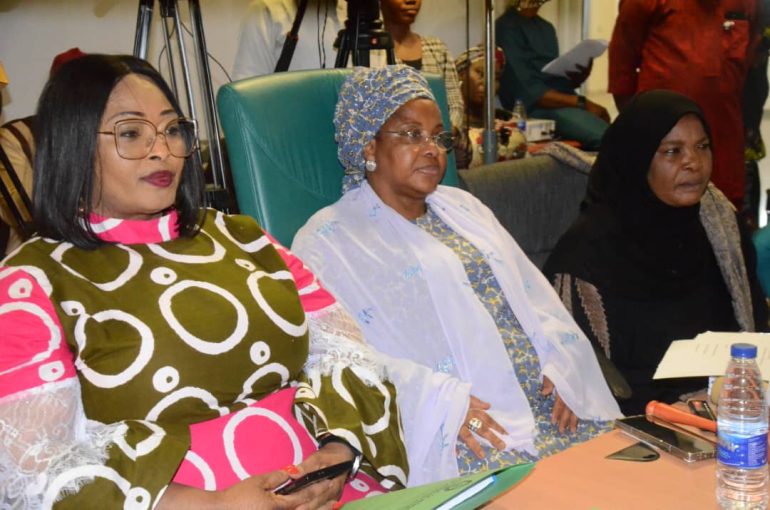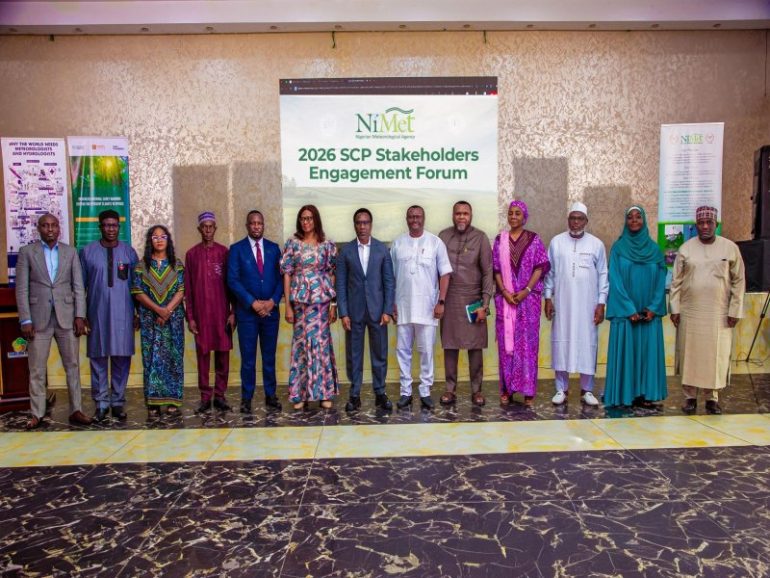Listeners:
Top listeners:
-
play_arrow
104.9FM Best rock music demo
-
play_arrow
Demo Radio Nr.1 For New Music And All The Hits!
-
play_arrow
Demo Radio Techno Top Music Radio
-
 play_arrow
play_arrow
Police Commissioner Launches Weapon and Riot Control Training for FCT Officers Democracy Radio

By: Juliet Onwurah
DG NAPTIP, reminded participants that under the law, domestic abuse is a criminal offence, not a private affair. “If your life is under threat, it ceases to be a husband-and-wife matter. It becomes a matter of state concern.” Photo Credit: Invictus Africa
When Nigeria passed the Violence Against Persons Prohibition (VAPP) Act in 2015, it was celebrated as a landmark legal victory, a blueprint for justice in a country struggling to curb gender-based violence.
Ten years later, for many survivors l especially in the suburbs of the Federal Capital Territory (FCT), the promise of protection remains painfully distant.
At a recent multi-stakeholder forum in Abuja, government officials, rights advocates, and civil society groups painted a sobering picture: while the law exists, its impact remains hampered by entrenched social norms, legal contradictions, and a justice system struggling to hold perpetrators accountable.
Hajiya Binta Bello, Director-General of the National Agency for the Prohibition of Trafficking in Persons (NAPTIP), in remarks delivered by the agency’s Acting Director, Tolu Odugbesan. said “we’ve documented over 3,000 gender-based violence cases in the Federal Capital Territory alone, yet very few make it to court, let alone end in conviction.”
Justice Elusive Despite Alarming Numbers
She affirmed that between rescue operations and arrests, NAPTIP has intervened in more than 2,000 cases and arrested 284 suspects. However, only 30 convictions have been secured, two resulting in life sentences.
The agency blames this gap on interference from families, religious leaders, and even victims themselves. “Victims often return to withdraw their complaints,”
Hajiya Bello said, “In some cases, domestic violence is dismissed as a mere ‘family issue’ that mindset allows abuse to thrive.”
Religious and Cultural Norms Fuel Silence
The forum also shed light on the powerful role culture and religion play in silencing victims, especially women. “Religious teachings often emphasise submission but neglect to teach mutual respect and love in marriage, that imbalance contributes to the culture of silence.” Hajiya Bello stated.
Men, too, are victims, though their stories are seldom heard. “A man reporting domestic abuse is ridiculed, not helped,” she added.
Legal Contradictions Undermine Protection
Bukky Shonibare, Executive Director of Invictus Africa, presented a data-driven assessment of the VAPP Act’s implementation. Her findings exposed contradictions between the Act and other legal instruments, including provisions in the Penal Code that permit the use of physical ‘correction’ on spouses.
“That clause violates a woman’s constitutional right to dignity, we’re calling for amendments, not abolition, because these loopholes weaken justice.” Shonibare said

She commended the VAPP Act for its progressive, gender-neutral definitions of rape and consent but stressed that weak enforcement remains a critical issue.
Uneven Commitment Across States
Invictus Africa’s new report Tagged: “Beyond Enactment” revealed that 30 states and the FCT now have Sexual Assault Referral Centres or shelters, but six states lack any survivor support infrastructure.
Among the findings:
- Only 18 states offer legal aid services.
- Just 8 states provide consistent forensic support.
- Medical costs despite promises of free care, remain a burden for many.
Shonibare explained “We found that awareness is still alarmingly low, only 46.7% of rural residents knew where to seek help. That figure drops to 27.2% among those with only primary education.”
Coordination Challenges Persist
Efforts to implement the law are often undermined by poor coordination:
- Nine states lack a formal implementation structure.
- Five have no appointed VAPP coordinators.
- Only 16 states maintain an updated register of service providers.
“Laws are only as strong as the systems that enforce them,” said Sola Abe, Communications Associate at Invictus Africa. “This anniversary must serve as a turning point—from paper promises to meaningful action.”
NAPTIP Responds with Action Plans
In response to growing concerns, NAPTIP disclosed that it has deployed three Rapid Response Squads within the FCT to handle urgent GBV cases. The agency has also launched a National Sex Offenders Register and conducted awareness campaigns in over 200 schools nationwide.
“We’ve prioritised public sensitisation and intend to scale up our efforts,” said Bello. “We are not just reacting, we’re building resilience.”
What Must Change
Stakeholders agree that to move forward, Nigeria must:
- Strengthen enforcement and amend outdated laws.
- Expand access to survivor services, especially in rural areas.
- Improve coordination across federal and state agencies.
- Launch sustained campaigns to shift societal attitudes.
“It’s not just a women’s issue, “Men must be allies, protecting their daughters, sisters, and partners. That’s how real change begins.”
Written by: Julian Osamoto
#GBV #NAPTIP #VAPP Act Invictus Africa
Similar posts
Copyright Democracy Radio -2024


